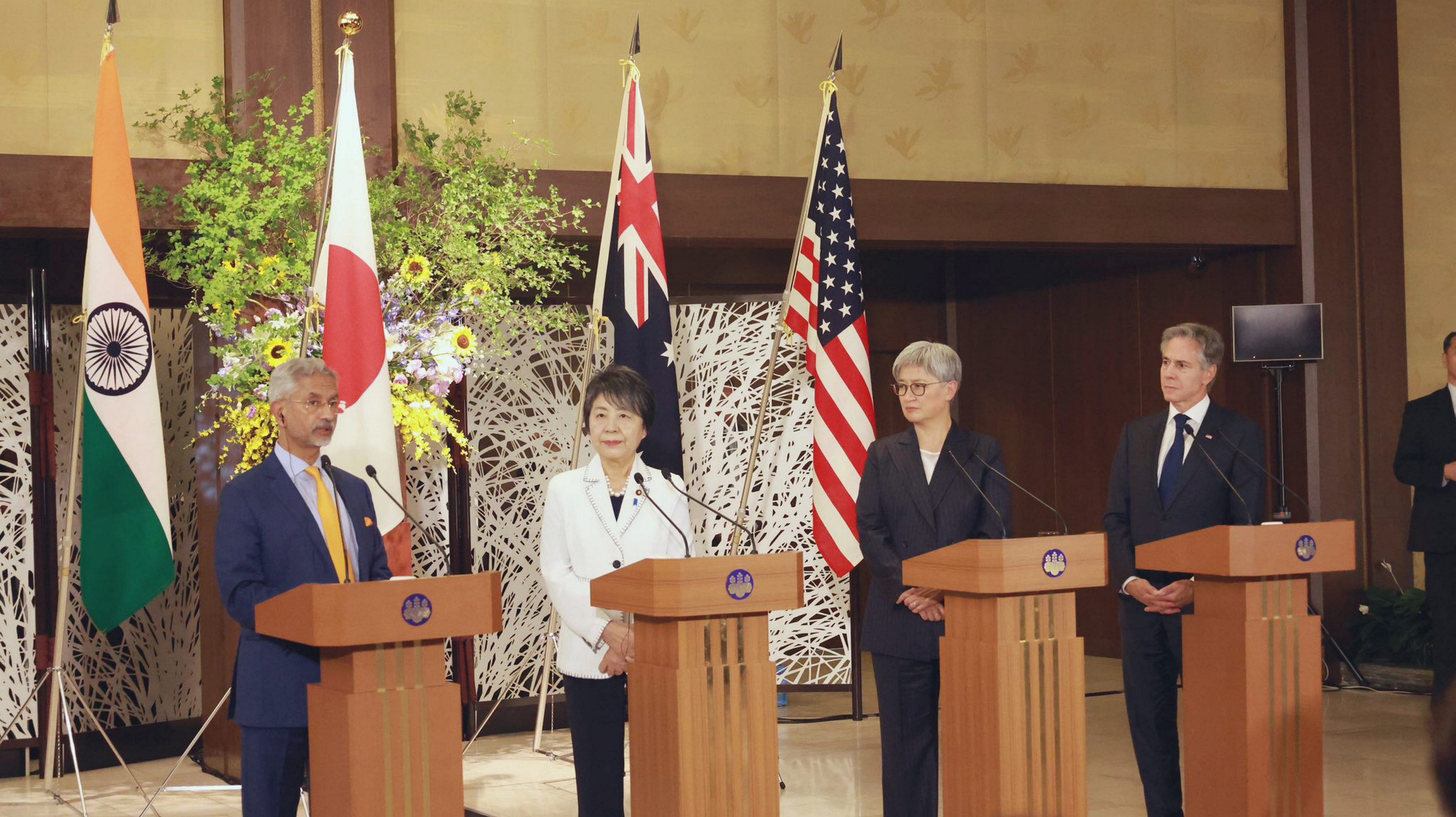
External Affairs Minister S Jaishankar along with Japan's foreign minister Yoko Kamikawa, Australia's foreign affairs minister Penny Wong and US secretary of state, Antony Blinken, addressing the press after the Quad Foreign Ministers Meeting in Tokyo.
Credit: PTI Photo
The Quad foreign ministers' meeting in Tokyo showed the group in waiting mode—waiting for the United States election. A leaders' summit has not taken place since May 2023.
It is New Delhi's turn to host it, but a summit proposed in January, right after the Republic Day parade, did not take place as US President Joe Biden conveyed his inability to attend. While this week's meeting included a reference to a leaders' meeting ‘later this year’, perhaps on the sidelines of the UN General Assembly in September, there is only so much that an outgoing president of the United States can bring to the grouping's table. Soon, the Quad's agenda and its fate will pass into the hands of the next US president.
It was Republican candidate and former president Donald Trump's trade war with China and the name-calling over Covid-19 that gave new life to an idea first proposed by Japan in the early 2000s. The foreign ministers of the formalised four-democracies diplomatic grouping first met (virtually) during the Trump presidency. If elected, Trump will show more interest in Quad than NATO, but a lot will be determined by what other changes he brings to the Biden foreign policy, including on Ukraine. A Kamala Harris win will see more continuity. Even so, if elected, she may want to put her own stamp on the grouping. As such, this year's meeting of foreign ministers seemed to be mainly a holding operation. The announcements covered a space-based climate warning system in Mauritius, and an undersea digital Cable Connectivity and Resilience Centre in Australia, built on initiatives launched at last year's meetings. Tellingly, there was no mention of the Indo-Pacific Economic Partnership, a new US trade policy launched by Biden last year ahead of the Hiroshima Quad summit, which had given rise to speculation of a ‘Quad Plus’ economic grouping.
Quad disavows descriptions of a security grouping, and has not named China in any of its statements thus far. But the reason for the group's existence against Chinese belligerence and quest for supremacy is quite evident in the calls for ‘a free and open Indo-Pacific’ ‘in which no country dominates and no country is dominated’. India's tightrope walk on Russia's war in Ukraine was put to the test once again as the meeting expressed ‘deepest concern’ and called for ‘a comprehensive, just, and lasting peace in line with international law ... including respect for sovereignty and territorial integrity.’ Regardless, the Quad's concern for Ukraine and Gaza would sound more sincere if the Biden administration stopped pumping money and weapons into those two wars. On Myanmar, this grouping of four democracies — especially India and Japan — have more leverage than just a show of concern to signal that they are on the side of that country's citizens, not its coup-making military machine.